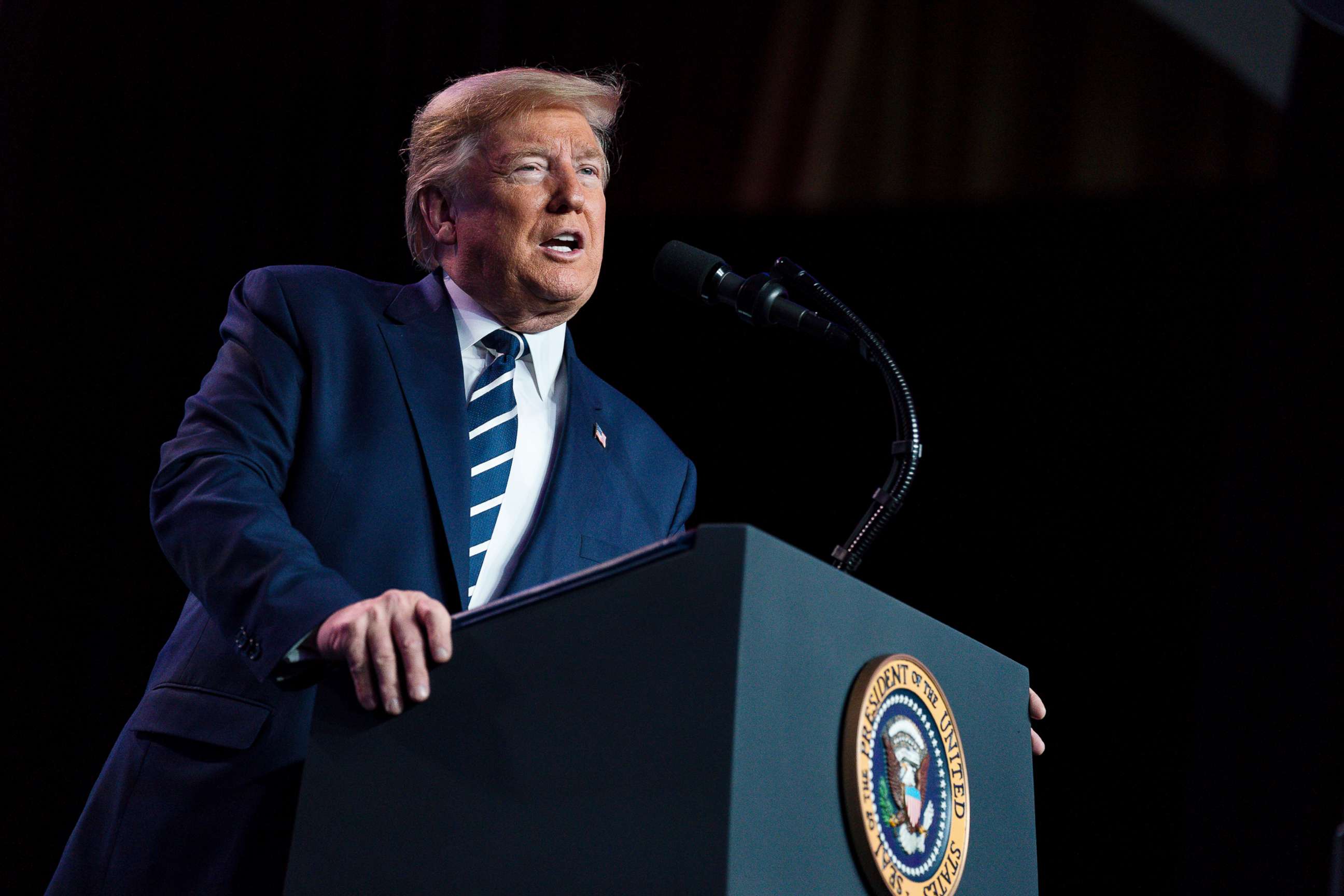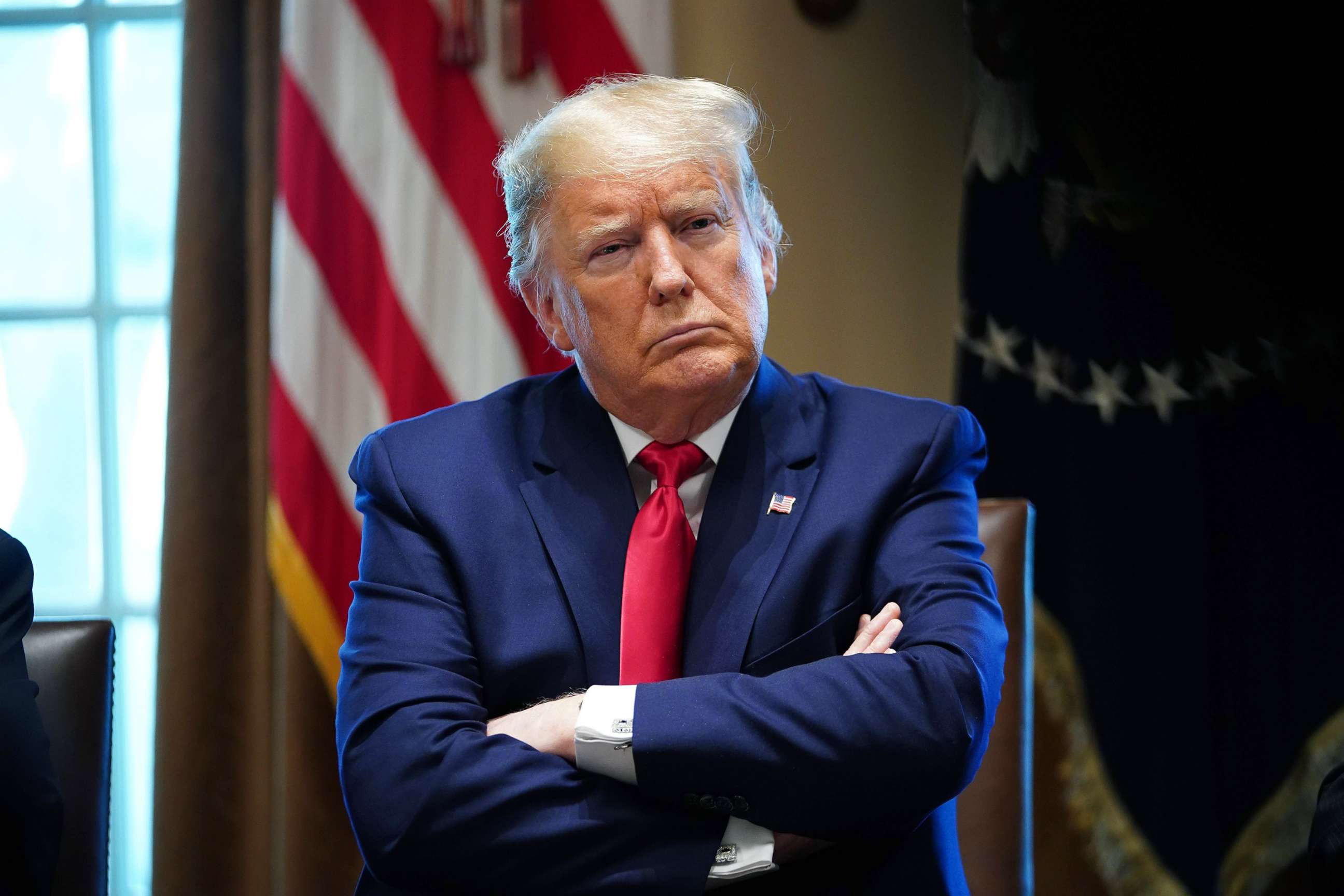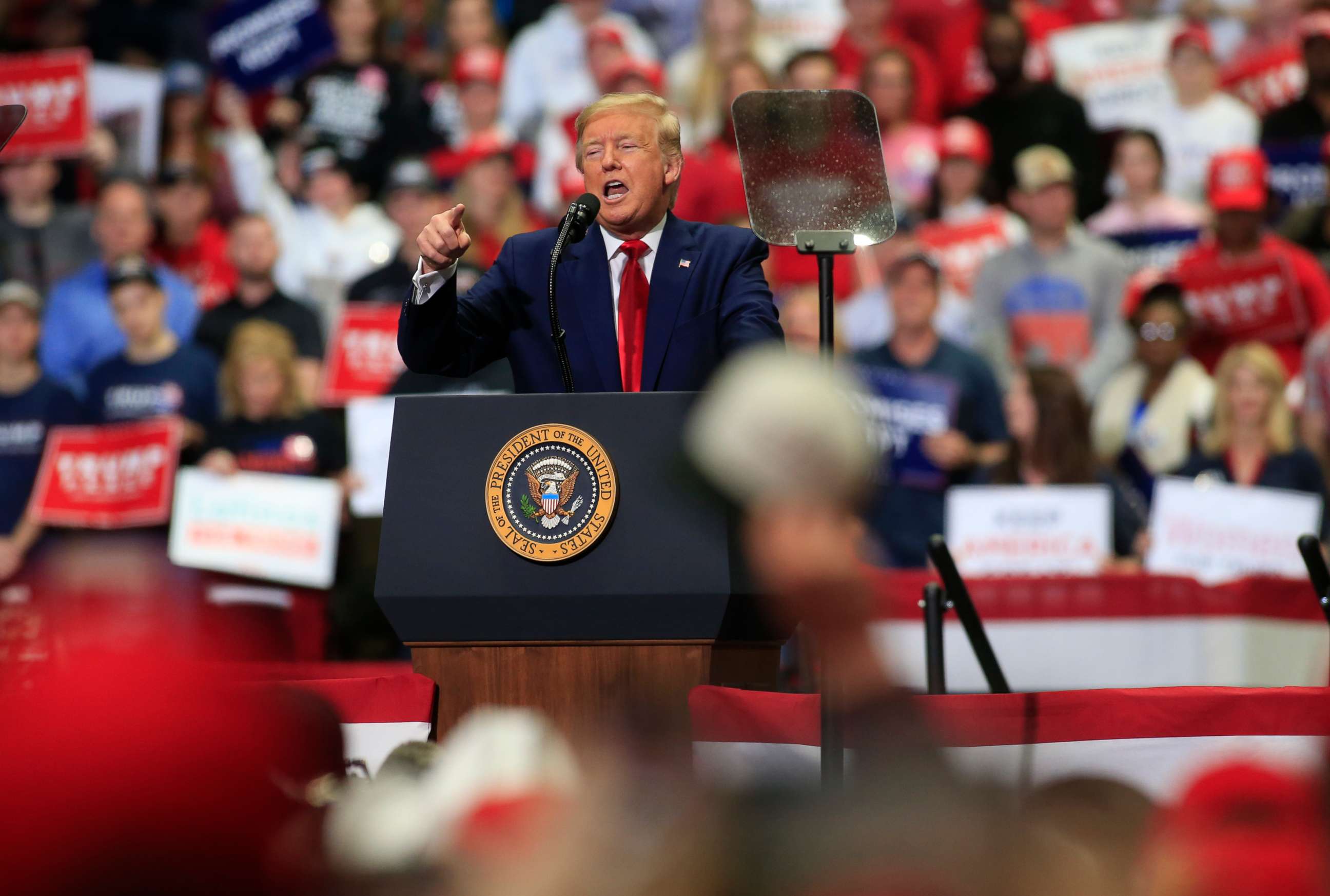Trump to visit NIH vaccine research center as novel coronavirus spreads
Trump has made optimistic claims about when a vaccine would be available.
President Donald Trump on Tuesday is set to visit the vaccine research center at the National Institutes of Health as his administration continues to project an aggressive approach to tackling the novel coronavirus, as more than 100 cases and six deaths have now been reported in the U.S.
The NIH visit comes as the president continues to strike an unrealistically optimistic tone in speaking about the pace of vaccine development. Earlier in the day, the president said he told vaccine developers to “speed it up” – and added “they will.”

“A lot of good things are happening and they're happening very fast. I said, ‘Do me a favor, speed it up, speed it up,’ and they will. They're working really hard and quick,” Trump said in a speech Tuesday morning to the National Association of Counties Legislative Conference in Washington.
The president's latest comments come a day after he met with top pharmaceutical company executives at the White House and suggested a vaccine could be just a few months away, not the year to 18 months experts say.

Dr. Anthony Fauci, director of the National Institute of Allergy and Infectious Diseases and a top member of the president’s coronavirus task force, stepped in to correct the record.
“Would you make sure you get the president the information that a vaccine that you make and start testing in a year is not a vaccine that's deployable, Fauci told the executives. "So, he's asking the question when is it going to be deployable? And that is going to be, at the earliest, a year to a year and a half no matter how fast you go,” Fauci said.
Despite Fauci’s correction and multiple statements from top officials that a vaccine is still more than a year away, Trump persisted in claiming a vaccine would be ready “relatively soon” at a campaign rally in North Carolina Monday night.

Despite the president’s overly optimistic claims about a vaccine, Fauci said in an interview on ABC's “Good Morning America” Tuesday that the president is right to express optimism about the prospect that researchers can develop a therapeutic drug to treat people, once they have the virus, within a matter of months.
“We could know within a period of a few months, maybe in early summer, late spring whether those therapies work. If they do, unlike a vaccine, you could make them immediately available,” Fauci said.
As efforts continue in full force to develop medicines and a vaccine for the spreading virus, the administration also announced a dramatic escalation in the ability to test for the virus by the week’s end.
During a Monday briefing at the White House led by Vice President Mike Pence, Food and Drug Administration Commissioner Stephen Hahn announced that “by the end of this week, close to a million tests will be able to be performed.”
In addition to the expansion in testing, the vice president said President Trump would visit the Centers for Disease Control in Atlanta "before the week is out" and announced new efforts to increase health screening procedures for people traveling on direct flights to the U.S. from Italy and South Korea, where the virus has become prevalent.
President Trump also hinted Monday that he could announce additional travel restrictions against “certain countries where they have more of a breakout.” The administration has already imposed restrictions against foreign nationals from who have been in China and Iran from traveling to the U.S.
Amid the flurry of action to combat the virus’ spread, the administration continued to hammer a message that the risk to most Americans remains low even as the government takes dramatic actions to stave off the spreading illness.
“The immediate risk to any individual American has been and does continue to be low,” Health and Human Services Secretary Alex Azar told reporters. “But the risk for people with possible exposure to identified cases can be high. What every one of the experts and leaders have been saying for more than a month now remains true. The degree of risk has the potential to change quickly, especially if we see sustained spread of the disease around the world which could qualify this disease as a pandemic.”




